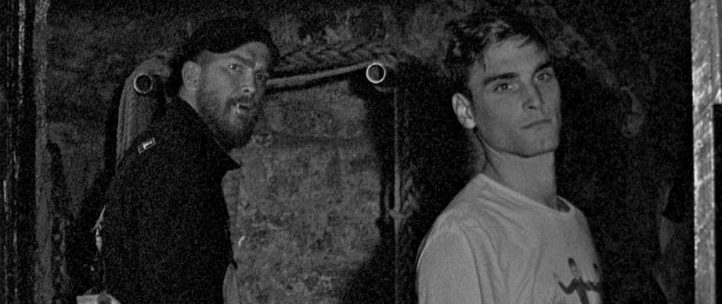
Dri/Wri: Mark Jenkin | UK 89′ | Format 4:3
Mark Jenkin’s seething seaside drama addresses several burning issues at the heart of British life. A poignant paean to the nation’s piscatorial traditions it also tackles the demise of our struggling countryside villages and coastal towns which have increasingly seen an influx of second home buyers inflating local property prices but bringing nothing tangible to locals outside the summer months. Even the sea is being invaded: Fishing quotas have seen British waters plundered and our once thriving fishing industry decimated. There are primitive issues at stake here about territory and human dignity and survival. And Jenkin handles these with a blunt simplicity that also manages to be evocative and darkly amusing. Like a Picasso sketch.
Being a Cornishman himself, Jenkin clearly knows what he is talking about in this taut and tight-lipped realist portrait of a coastline in crisis. Cornwall is very a much a character here: the soft burr of the local dialect, the traditional seafaring customs, even the sailors’ knots and lobster pots are key motifs throughout.
The film follows Martin (Edward Rowe) a glowering and surly fisherman who finds himself without a boat. His brother Steven (Giles King) has recommissioned it for pleasure cruises. They have also had to sell the family cottage to a wealthy couple Tim and Sandra (Simon Shepherd and Mary Woodvine), who have done it up as a holiday cottage cherry-picking from the vernacular to give it a twee nautical feel. (portholes, ropes etc). To add insult to injury they are letting out their neighbouring property on Airbnb.
Calling Tim a “prancing lycra clad c**t” Martin resents the couple’s financial clout when he is struggling to make ends meets, and parks his clapped out van infant of their cottage to drive the point home in an ongoing battle. He also dislikes Tim and Sandra’s daughter flirting with Steven’s son Neil (Isaac Woodvine). Despite his gruffness we really feel for him but Jenkin remains impartial, judiciously painting Sandra as a sympathetic character.
Bait brings to mind Soviet Montage, the strong-faced actors conveying their feelings with expressions rather than words, as they stare into the camera. Shot in black and white with a 1970s wind-up camera Bolex, there’s a crude grainy feel to the film making it feel rooted in the distant past but the radio broadcasts bring it right up to date. Jenkin often uses metaphors to replace unpalatable truths. Jenkin completely avoids melodrama even when tragedy looms. And when Martin finally confronts Steven, disbelief and sadness is expressed with evasive but significant words: “They got rid of mother’s pantry”.
But despite the hostility between residents and ‘tourists’ there’s also a salty humour at play throughout and a formal rigour. Bait is a quintessentially English creation that sees a small community determined to keep triumphantly afloat in stormy seas. MT
BAIT won the Grand Prix and the Audience Award of the 19th edition of the Polish New Horizons Film Festival | CINEMAS NATIONWIDE FROM 30 AUGUST 2019